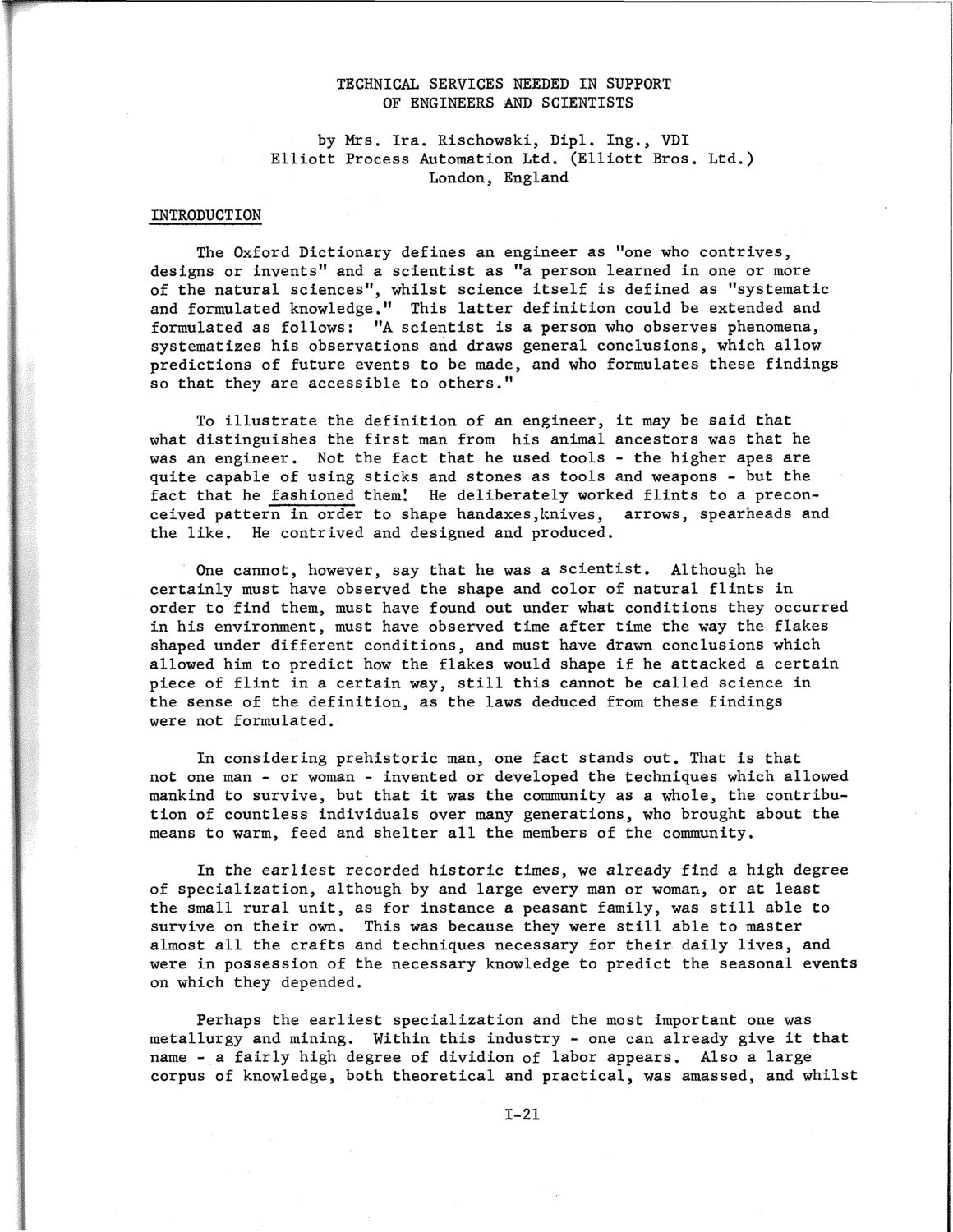| |
| |
Caption: SWE - Proceedings of the First International Conference of Women Engineers and Scientists
This is a reduced-resolution page image for fast online browsing.

EXTRACTED TEXT FROM PAGE:
TECHNICAL SERVICES NEEDED IN SUPPORT OF ENGINEERS AND SCIENTISTS by Mrs. Ira. Rischowski, Dipl. Ing., VDI Elliott Process Automation Ltd. (Elliott Bros. Ltd.) London, England INTRODUCTION The Oxford Dictionary defines an engineer as "one who contrives, designs or invents" and a scientist as "a person learned in one or more of the natural sciences", whilst science itself is defined as "systematic and formulated knowledge." This latter definition could be extended and formulated as follows: "A scientist is a person who observes phenomena, systematizes his observations and draws general conclusions, which allow predictions of future events to be made, and who formulates these findings so that they are accessible to others." To illustrate the definition of an engineer, it may be said that what distinguishes the first man from his animal ancestors was that he was an engineer. Not the fact that he used tools - the higher apes are quite capable of using sticks and stones as tools and weapons - but the fact that he fashioned them! He deliberately worked flints to a preconceived pattern in order to shape handaxes,knives, arrows, spearheads and the like. He contrived and designed and produced. One cannot, however, say that he was a scientist. Although he certainly must have observed the shape and color of natural flints in order to find them, must have found out under what conditions they occurred in his environment, must have observed time after time the way the flakes shaped under different conditions, and must have drawn conclusions which allowed him to predict how the flakes would shape if he attacked a certain piece of flint in a certain way, still this cannot be called science in the sense of the definition, as the laws deduced from these findings were not formulated. In considering prehistoric man, one fact stands out. That is that not one man - or woman - invented or developed the techniques which allowed mankind to survive, but that it was the community as a whole, the contribution of countless individuals over many generations, who brought about the means to warm, feed and shelter all the members of the community. In the earliest recorded historic times, we already find a high degree of specialization, although by and large every man or woman, or at least the small rural unit, as for instance a peasant family, was still able to survive on their own. This was because they were still able to master almost all the crafts and techniques necessary for their daily lives, and were in possession of the necessary knowledge to predict the seasonal events on which they depended. Perhaps the earliest specialization and the most important one was metallurgy and mining. Within this industry - one can already give it that name - a fairly high degree of dividion of labor appears. Also a large corpus of knowledge, both theoretical and practical, was amassed, and whilst 1-21
| |